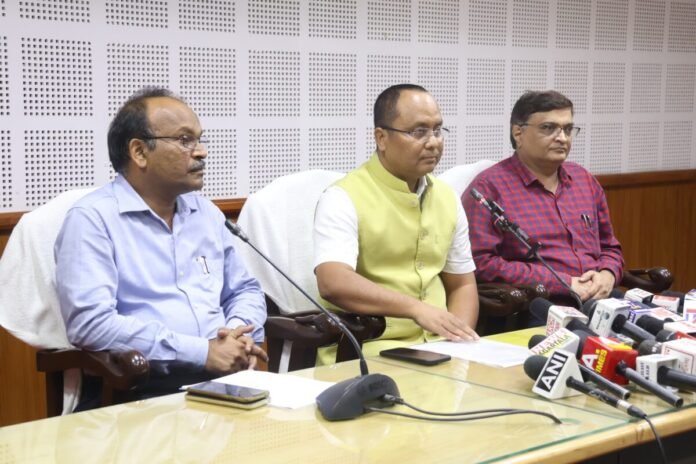The Tripura government, under the leadership of its current administration, has announced a crucial new drive for the demarcation of tribal Patta lands within the state’s forest areas. Tribal Welfare and Revenue Minister Animesh Debbarma made this important declaration, highlighting the government’s commitment to resolving long-standing issues related to land rights for the indigenous tribal population. This initiative is seen as a major step toward addressing tribal grievances, securing land ownership rights, and fostering development within forest areas.
Historical Context of Tribal Land Rights in Tripura
Tripura, a northeastern state rich in biodiversity and home to a large tribal population, has long grappled with issues concerning tribal land rights. Traditionally, much of the state’s forested land has been inhabited by indigenous communities, who have practiced shifting cultivation (locally called ‘jhum’ cultivation) and other subsistence activities for generations. However, legal complexities around land ownership and encroachments have resulted in tensions between forest-dwelling communities and the state, particularly regarding the recognition of traditional lands under official land records.
In the past, the state government issued Pattas (land ownership documents) to tribal families for specific plots of forest land, but the demarcation of these lands has remained inconsistent. Without clear boundary markings, tribal people have often faced difficulties in claiming their land, leading to disputes over land use, encroachment by non-tribals, and even eviction in some cases. The new initiative, therefore, seeks to address these long-standing issues and ensure security of tenure for tribal landholders.
Objective of the New Drive
The drive for demarcation of tribal Patta lands will involve detailed mapping and verification of existing claims over forest areas. Minister Animesh Debbarma has emphasized that the key goal is to provide clarity on ownership while safeguarding the rights of tribal people under the Forest Rights Act (FRA) of 2006. This central legislation is a landmark law aimed at recognizing the rights of forest-dwelling communities, and the Tripura government’s new drive is seen as an attempt to strengthen the implementation of this act at the state level.
Minister Debbarma, who represents the Indigenous Peoples Front of Tripura (IPFT) and is a vocal advocate for tribal rights, noted that the state has been slow in fully implementing the FRA, which grants forest-dwelling tribes the right to live and cultivate on their ancestral land. He asserted that the new demarcation drive would rectify past shortcomings, including cases where tribal families were wrongly excluded from receiving land titles under the FRA.
Role of Local Bodies and Forest Officials
A collaborative approach will be undertaken to ensure the success of this demarcation effort. Minister Debbarma outlined that the process will involve cooperation between local tribal bodies, forest officials, and government surveyors. Survey teams will be deployed to conduct physical verifications of claimed land, marking boundaries on the ground with the involvement of local Gram Sabhas (village assemblies) and community leaders.
This will not only ensure transparency but also promote local participation in the decision-making process, empowering tribal communities to actively engage in securing their land rights. The government also intends to employ modern GPS-based technology to ensure precision in demarcation and to prevent future disputes over overlapping claims.
Challenges and Anticipated Benefits
While the announcement has been widely welcomed, the government is also preparing for potential challenges in the execution of this large-scale exercise. Some areas in Tripura have seen encroachments by non-tribal populations, and resolving these conflicts is expected to be complex. There is also the logistical challenge of covering vast forested territories, much of which are in remote and difficult-to-access regions.
However, the government is confident that the initiative will yield far-reaching benefits. Properly demarcated lands with clearly defined ownership rights will empower tribal communities by providing them with secure access to their ancestral lands. This in turn will encourage better utilization of land resources, promote sustainable agricultural practices, and reduce conflicts between forest communities and forest authorities.
Minister Animesh Debbarma also emphasized the importance of this drive in preserving the cultural heritage and traditional livelihoods of the tribal population. He stressed that land is not just an economic asset but a critical part of tribal identity, and securing land rights is fundamental to the social and economic well-being of these communities.
The Tripura government’s decision to launch a new drive for the demarcation of tribal Patta lands marks a significant move toward ensuring land security for indigenous communities. As Minister Animesh Debbarma has pointed out, this initiative will not only resolve long-standing land disputes but also enhance the economic stability of tribal families by giving them legal control over their land. While challenges remain, the drive represents a hopeful step forward for tribal rights in the state, promising a more secure and prosperous future for Tripura’s forest-dwelling populations.


